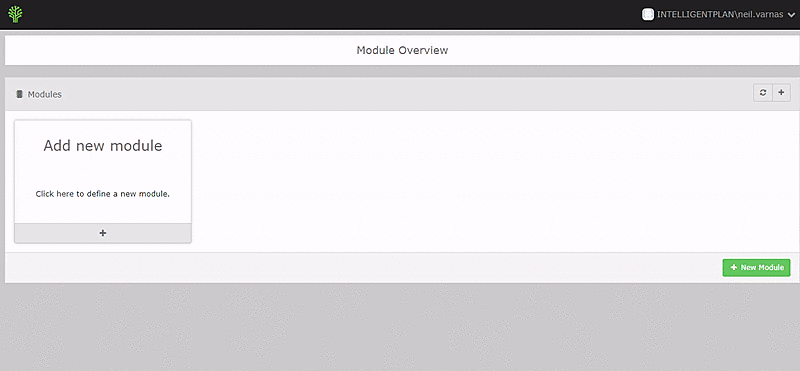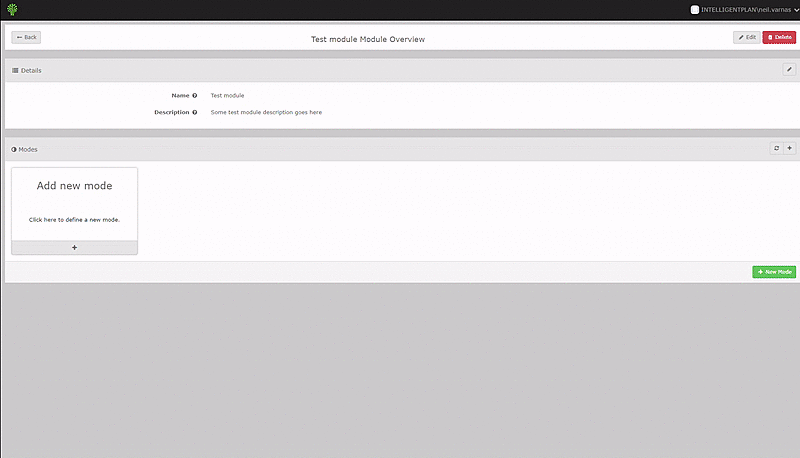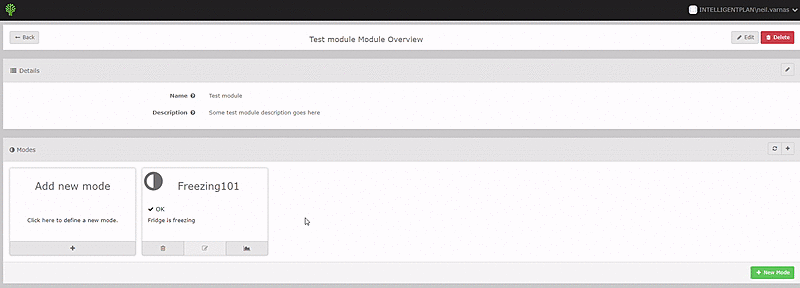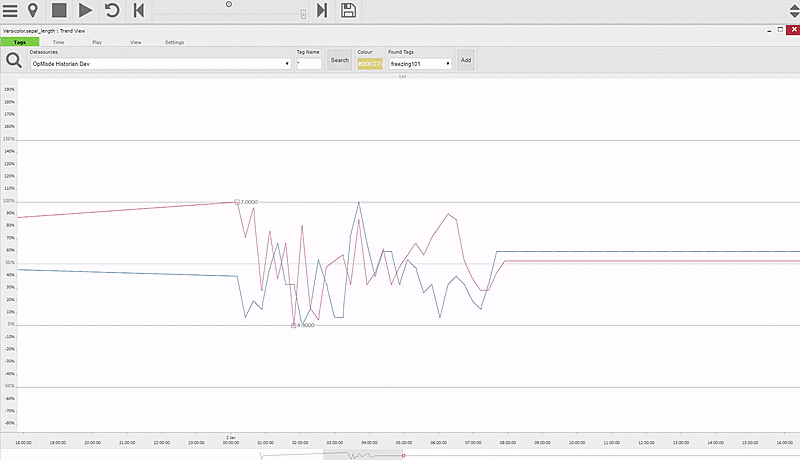OpMode

Use machine learning yourself and easily define different operating modes on your plant from multiple PVs.
Additional Info
OpMode
£POA
Sign in and click 'Start' to begin
using OpMode with free demo data
What Does OpMode do?
OpMode provides engineers with a quick and easy way to run a machine learning algorithm on operational data from compressors, gas turbines, valves and any item of plant. OpMode performs PCA (Principal Component Analysis) to try to find failing or poor performing equipment.
Train OpMode on data from normal operation modes and receive notifications when abnormal modes are detected. OpMode can be used as an important tool in your Predictive Maintenance programs.
As an example: When OpMode was used on choke valves without a choke model and with only pressures and position data, it highlighted a problem occurring 2 months before a failure which required the replacement of a choke valve.
OpMode consists of 3 main components:
Modules:
- A collection of modes
Modes:
- Mode component can be defined by one or more areas
Area:
- Process PVs bounded by a period of time which indicate a mode. For better and more precise results you may want to define multiple areas
By default OpMode will profile 6 months of historical data. It will then subscribe to new values coming in for selected tags. You can track progress displayed on the mode card or visualise them in trend by finding a newly created tag.
These mode results can then be superimposed against the source data tag.
What's New?
View our release notes to find out about recent updates to this app.
Case Study: Proactive Choke Valve Degradation Detection Using OpMode
Overview
In the oil and gas industry, maintaining continuous well operation is paramount to maximising production and minimising costs. BP faced a significant challenge with the gradual degradation of a choke valve on PU-IC, which, if left undetected, could lead to unplanned shutdowns and substantial financial losses.
To address this challenge, Intelligent Plant deployed OpMode, a versatile tool designed to detect behavioural changes in equipment without relying on process-specific knowledge. OpMode’s capability to be applied quickly to any piece of equipment made it an ideal solution for monitoring the choke valve’s condition.
Challenges
Choke valves are critical in controlling the flow rate of production fluids from wells, and their degradation over time can severely impact operational efficiency. BP encountered several challenges:
- Gradual Degradation:
The degradation of the choke valve was not an instantaneous event but occurred gradually over an extended period. This made it difficult to detect using traditional monitoring methods.
- Need for Early Detection:
Identifying the early signs of degradation was crucial to avoid unplanned shutdowns and maintain continuous well operation.
- No Process Knowledge:
A tool was needed that could identify changes in equipment behaviour without requiring detailed process knowledge, enabling rapid deployment across various assets.
Solution
Intelligent Plant deployed OpMode to monitor the choke valve on PU-IC. The tool was configured to detect potential degradation by analysing changes in operational behaviour, without requiring any prior process-specific knowledge.
Key Features of the Solution:
- Behavioural Analysis:
OpMode was set up to detect changes in the choke valve's behaviour over time by analysing upstream and downstream temperature and pressure data, along with choke position.
- Principal Component Analysis:
OpMode utilised Principal Component Analysis (PCA) to derive interim results from the collected data, identifying significant behavioural changes in the valve.
- Early Warning Detection:
The tool identified a major shift in the choke valve's operational behaviour 9-10 months before the valve was replaced, indicating early signs of degradation that could have prompted proactive maintenance planning.
Results and Impact
The implementation of OpMode provided BP with crucial insights into the health of the choke valve, leading to significant potential savings:
- Binary Tag for Operational Mode:
The results from OpMode were simplified into a binary tag that indicated whether the choke valve was operating within the "normal" or "good" operational mode. This allowed engineers to quickly assess the valve's condition.
- Gradual Deviation from Normal Operation:
Over time, the choke valve was observed to deviate more frequently from the "good" operational mode, signalling a deterioration in its performance. This deviation was consistently detected by OpMode, providing early warnings well before the decision to replace the valve was made in late 2018.
- Preventative Maintenance Planning:
By alerting engineers to the gradual degradation, OpMode could have facilitated better planning for maintenance and potential shutdowns, helping to avoid unplanned interruptions and saving BP millions of pounds.
Conclusion
The deployment of OpMode on BP's PU-IC choke valve demonstrated the tool's powerful capability to detect early signs of equipment degradation, even in scenarios where traditional monitoring methods might fail. By identifying changes in behaviour long before a failure occurred, OpMode provided BP with the opportunity to plan for maintenance proactively, reducing the risk of unplanned shutdowns and optimising operational efficiency.
This case study highlights the value of using intelligent monitoring tools like OpMode to enhance the reliability of critical equipment in the oil and gas industry. Intelligent Plant continues to deliver solutions that empower operators to maintain continuous operations, reduce risks, and achieve substantial cost savings.





